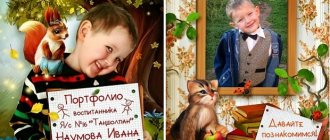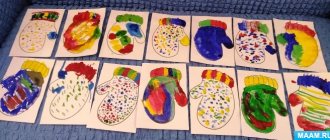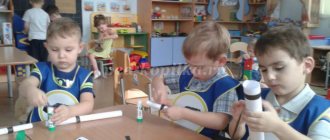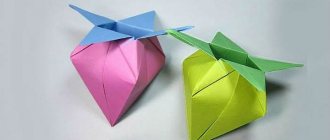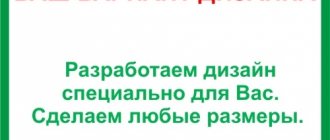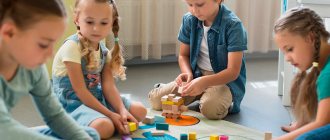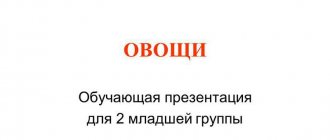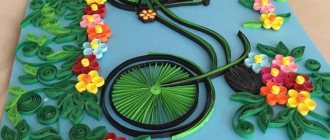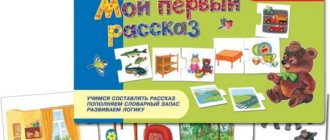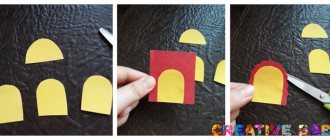Presentation of a portfolio of a kindergarten group in verse
Scenario for presenting a portfolio of a group in the kindergarten “Bee”
Relevance Currently, portfolio technology is widely used in the field of education, including in the practice of preschool education. The significance of this technology is as follows. Firstly, it is aimed at the interaction of all participants in the educational process. Children, teachers and parents jointly participate in the creation of a single creative product. Secondly, this is one of the ways to improve the quality of the educational process, since the use of this technology contributes to the achievement of positive results for both the individual (child, teacher) and the team as a whole (group, preschool educational institution). Goal: creating an atmosphere of openness and community among all participants in the educational process. Objectives: - create a situation for the group to experience success; — maintain the interest of group teachers in the formation of a group portfolio; — strengthen interaction with the families of the group’s pupils, increase the interest of parents (legal representatives) in the results of the group’s development and joint activities with the preschool institution. Music sounds and children run into the music room, imitating bees. Children in chorus: Hello, dear guests! Educator 1: Today we are pleased to welcome you to our hive! Group commander: Welcome to the group - Children in chorus: “Bee” Teacher 1: In the group called “Bee” Wonderful boys and girls. They sculpt, draw, dance, sing, live happily and happily together. They learn all the poems together, develop their fingers, and develop their naughty tongue, too, so that their speech sounds clear, like a stream. Educator 2: Here they find friends and go for walks with them. Together they argue and dream, growing up imperceptibly. Kindergarten is your second home, How warm and cozy it is. You love it, children, Children: The kindest house in the world! Group commander: Our motto is Children in chorus: Little bees - They don’t sit idle - They receive knowledge and carry it boldly! They use it deftly in games, songs, and sports. Little bees - Learn by playing! Group commander: Our group’s song is 1. Boys and girls, I made up a game. You and I have become Bees, I’m taking you on a flight. We all need to become friends, We have a swarm of bees. Let's spin around and repeat after me! Chorus 1:
We can, we can, we can do amazing miracles, It is only necessary that everyone wants to do it together, It is only necessary that everyone wants to do it together, They want to and fly into the sky!
2. Boys and girls, I’m taking you on a flight. You and I have become bees, we collect honey. How fun it is to circle and buzz over the meadow. We will never offend each other! Chorus 2:
We took off, we took off, we took off. How fun we are to spin and buzz.
It is only necessary that everyone wants to do it together, It is only necessary that everyone wants to do it together, Never offend anyone! Chorus 1:
We can, we can, we can do amazing miracles, It is only necessary that everyone wants to do it together, It is only necessary that everyone wants to do it together, They want to and fly into the sky!
La-la-la……………………….. Chorus 2:
We took off, we took off, we took off How fun we are to spin and buzz.
It is only necessary that everyone wants to do it together, It is only necessary that everyone wants to do it together, Never offend anyone! Chorus 1:
We can, we can, we can do amazing miracles, It is only necessary that everyone wants to do it together, It is only necessary that everyone wants to do it together, They want to and fly into the sky
Child: We can not only spin and buzz, We also love to dance ! Dance of the Bees Presenter 1: Guys, a new bee has flown into our hive. Just like us, she loves to play, sing and dance, but she is very bored alone. Let's invite her to our family and let's all be friends together! Poems “Our Hobbies” Children: We will now tell you all, Not for entertainment, That we each have our own hobby. 1. Our Vika is so diligent, smart and smart. As soon as he finishes all his work, he runs out into the street. 2. And Lily has manners, squinting her eyes from afar. Apparently, she will be the director of a school or kindergarten. 3. And Sasha the Beauty doesn’t have a tight braid at all. She doesn’t need a braid, she’s so passionate about dancing! 4. Nastya likes to play pranks, play and talk. She also loves her name What Anastasia sounds like. 5. And our Artemka has beautiful sneakers. Our Artem plays football, He defends the goal. 6. Our Misha goes to exercise in good spirits, but when it ends, he leaves with regret. 7. Who started up and rushed off like a fast plane? This is Tim in our Marathon running group. 8. Sasha loves Lego very much. He is on friendly terms with the designer. Maybe he will become an engineer, builds buildings and bridges. 9. Our Sasha loves music, He dances and sings, He leads round dances together, In general, he lives happily! 10. Lavrik loves to draw and play ball with his brother. He's a mischievous boy. Just spin like a top. 11. Zhenya loves chocolate, marshmallows, and marmalade. He washes everything down with tea or warm milk. 12. Artyomka has everything laid out on shelves in her head. He will tell you everything with feeling and sense, even about ice cream. 13. Our Arsyusha is great, plays with cubes, and then the whole group takes a long time to assemble them. 14. Ah, our Sasha, Sasha, Two huge eyes. He is his favorite cartoon. He has never missed it. 15. And our Yarik is the most serious of all. He is a good gentleman, both well-mannered and modest. We must follow his example. 16. Don’t look, Mark is fragile, thin and small. It’s not for nothing that he stands at the gate, Agile and attentive. 17. Ah, Maksimka, no matter where, loves exercise. He plays sports, not for fun! 18. Sasha loves to jump, run, and climb everywhere. The teacher says - He is like an energizer. Children in chorus: We told you poems about our hobbies, and now accept some treats from our group! Educator 2: And now, dear guests, we invite you to the group to look at the design of the portfolio.
We recommend watching:
Preschool teacher in raising children Description of the pedagogical experience of a kindergarten teacher on the topic: Plasticineography Education of cultural and hygienic skills. Planning. Preparatory group A project on traffic rules in the preparatory group of a preschool educational institution. Photo
Similar articles:
The role of folklore in the physical education of preschool children
Presentation “Involving parents in the educational process of preschool educational institutions”
author: Semenyuk Lyudmila Petrovna
Teacher Municipal preschool educational institution child development center "Iskorka" - kindergarten No. 24
Presentation “Involving parents in the educational process of preschool educational institutions”
INVOLVEMENT OF PARENTS IN THE EDUCATIONAL PROCESS OF PRESIDENTIAL EDUCATIONAL INSTITUTIONS
Any work is effective then
When it is properly organized.
Topic: “Involving parents in the educational process of a preschool organization:”
The first school of a growing person is family. She is the whole world for a child, here he learns the ability to love, endure, rejoice, and sympathize. In the context of a family, an emotional and moral experience unique to it develops: beliefs and ideals, assessments and value orientations, attitudes towards people around them and activities. The priority in raising a child belongs to the family.
In kindergarten, a child receives his first knowledge, acquires communication skills with other children and adults, and develops the ability to organize his own activities.
Involving parents in the educational process is the unification of common goals, interests and activities in terms of the development of a harmonious and healthy child.
How to get parents interested in working together?
How to make them participants in the educational process?
After all, a positive result can only be achieved within a single educational space, implying interaction and cooperation between preschool teachers and parents throughout preschool childhood.
Modern families, different in composition, cultural traditions and views on education, have different understandings of the child’s place in the life of society. However, they are all united in wanting the best for their child.
In raising children, neither family nor kindergarten can replace each other. None of us individually can provide the full upbringing of a child attending a preschool institution. The need for pedagogical interaction becomes obvious. We try to establish this contact with parents at the very beginning of communication, from the younger group.
The main goal of involving parents in the educational process is to make them active participants in the pedagogical process, assisting them in realizing responsibility for the upbringing and education of children.
Work to involve parents in the joint activities of the group is planned in four areas:
- Informational and analytical.
- Visual and informational.
- Cognitive direction.
- Leisure direction.
- Information and analytical direction
In order to study the family and establish contact with its members, she began her work with questionnaires and testing. Based on the collected data, I analyzed the specifics of the family and family education of a preschooler, and developed communication tactics with each parent.
A group was created on a social network, as a result of which parents had the opportunity to communicate with each other, with teachers, ask questions, give advice, share experiences, and receive information.
- The direction is visual and informational.
It makes it possible to convey any information to parents in an accessible form, to tactfully remind them of parental responsibilities and responsibility.
The form of work through the parent corner, regulatory documents, notices and advertisements, productive activities (drawings, crafts), consultations, moving folders is traditional, but it is necessary for working with parents, because they complement live communication with teachers on a current topic in education children. New, beautifully designed information quickly attracts the attention of parents and gives a positive result.
- The cognitive direction
is to enrich parents with knowledge in matters of raising preschool children.
* One of the most traditional, but effective cognitive forms of working with families remains the parent meeting. I hold meetings in the form of discussions, round tables, KVN, gatherings with the participation of preschool education specialists. I often use video recordings of children’s activities, fragments of classes, and presentations of projects. That is why the percentage of attendance at such meetings is quite high.
* I also conduct oral thematic consultations and conversations in order to answer all questions that interest parents. I hand over the brochures.
* One of the time-tested forms is to involve parents in the life of the group, organizing their joint activities with their children. So, parents of different professions came to visit their preschoolers, had conversations with them, and played. For example, the pupil’s grandmother, an employee of the Ministry of Emergency Situations, gave a life safety entertainment “Young Rescuers”, and another grandmother, a cook, gave the children a master class on baking larks from dough. The children had an unforgettable meeting with a Cossack (the uncle of one of the pupils), where they learned about the history of the Cossacks, listened to a fairy tale, and played games.
* An interesting form of building trust and mutual understanding with the family are exhibitions of joint creativity between children and parents on various topics.
It should be noted that all the parents of our group took an active part in various competitions both within the preschool educational institution and city and all-Russian: “Save our planet”, “Great-grandchildren of Victory”, “Pearl of KMA”, “Santa Claus’s Birthday”, “Burning Kupava” , “Iron”, etc.
* “Master classes for parents” are one of the most effective and popular forms of work with families, which allows you to realize the need to establish mutual understanding between teachers and parents in the space of a preschool educational institution, to exchange emotions, knowledge, and experience so that the teacher does not impose his point of view , but gave every parent the opportunity to take an active part in discussing current issues.
* Landscaping and arrangement of the site were also not without the participation of our respected parents. Dads took an active part in planting bushes. Children not only observed the actions of adults from the sidelines, but were also active participants in the process.
* In my work I actively use the project method
, involving parents in completing a certain part of the overall task.
* One of the active forms of working with parents is joint excursions. Parents have the opportunity to spend time with their child in an unusual environment, to engage and interest them by personal example.
I managed to create an atmosphere of goodwill, which greatly contributed to strengthening parent-child relationships, further uniting our team.
* Even in such a difficult time for all of us, during the period of self-isolation, we continued to communicate very closely online, using the Watsapp group. Parents shared the progress of joint activities while at home, and I, in turn, recommended to them interesting ideas for games and exercises that the child can do independently or with the help of an adult.
The children were especially interested in conducting experiments with water, air, and magnets. Many photographs and videos came from parents about carrying out various joint activities with their children: drawing, sculpting, constructing various buildings, learning poetry, reading fiction, telling fairy tales, practicing copybooks. I am very grateful that our work with parents is mutual!
- Leisure
is the most attractive, popular and useful direction. It allows for the establishment of warm informal relationships between teachers and parents, as well as more trusting relationships between parents and children.
This group of forms includes holding traditional joint holidays and leisure activities.
At these events, parents were active participants and not guests of the preschool. They played, sang songs, read poems, guessed riddles together or competed with the children.
* It has become traditional to hold sports entertainment dedicated to “February 23rd”. Our children willingly compete with a subset of dads. When they are carried out, conditions are created not only for the physical development and strengthening of the health of all participants, but also for family unity.
* The sports event “Let’s do it together” was held in the morning on the sports ground for three days so that everyone could take part. Most of our parents took part in the event during these three days, and some families more than once.
* Parents, feeling the warm and friendly atmosphere of the kindergarten, became active participants in other events. So our dads took part in the city event “Dad Zone”, held in the park of culture and recreation. Together with the children, they took part in sports competitions: lifting weights, completing accuracy tasks, etc.
The participation of families in joint events enriched family leisure time and united them in a common cause.
I would like to talk about one point in the system of working with parents. All of us, having done our work, need to have our work evaluated. This is true always and everywhere. We must not forget to praise the parents of our students. Show mutual respect for each other. We must remember that all people have different resources and lifestyles. What suits one person may not suit another. Bring to the attention of parents that their participation in the life of the preschool educational institution and the group is valued, and any help from them is welcome.
Organizing interaction with the family is difficult work, without ready-made technologies and recipes. Her success is determined by the teacher’s intuition, initiative and patience, and the ability to become a professional helper in the family. It seems to me that I am coping with this task, the parents of my students are the most open and sensitive, they are easy-going. They treat my advice and requests with respect and attention.
But I don’t stop there, I continue to look for new ways to cooperate with parents.
After all, we have one goal - to educate future creators of life. What a person is like is the world he creates around himself. I would like to believe that our children, when they grow up, will love and protect their loved ones. Presentation “Involving parents in the educational process of preschool educational institutions”
Group View
Alexandra Bosenko
Group View
Lately, we often have to represent our group at various MOs . I want to help those who have also encountered this problem and do not know how to do it correctly.
group presentation
Dear colleagues! Welcome to the senior group .
I, Bosenko A. A., teacher of the 1st qualification category, work experience 16 years.
We work on the main general education programs “Childhood”
edited by Gogoberidze and Babaeva and O. L. Knyazeva
“Introducing children to the origins of Russian folk culture”
, we use in our work additional programs by L. N. Voloshina
“Play for your health!”
, O. S. Ushakova
“Development of speech of preschool children”
and “End-to-end program for early teaching of English to children in kindergarten and 1st grade of primary school”, ed. Epanchintseva and Moiseenko.
In the reception room, advisory material for additional education teachers, an information stand, and exhibitions of children’s work on productive activities have been prepared for parents.
The subject-development environment in the senior group provides the opportunity for each child to choose activities based on his interests and allows him to interact with peers or act individually.
The fullness of the subject-based developmental environment ensures the diversified development of children, the accumulation of experience in play, productive, cognitive-research, communicative, labor, musical, artistic and motor activities.
Leading tasks of the “Childhood”
in working with children 6 years old:
1. Strengthen health, continue to develop the motor and hygienic culture of children.
This is one of the main tasks of working in our kindergarten - strengthening physical and mental health. To solve problems in the educational field “Physical Education”
a motor activity center has been created
in
the group Children can use sports equipment and attributes for outdoor games at any time. The following tasks:
2. Foster a culture of communication, emotional responsiveness and goodwill towards people.
3. Develop children’s aesthetic senses, emotional and value orientations, and introduce children to artistic culture.
Develop interest in the life of your country, city, activities and relationships of people in society; to enrich social and gender ideas , social value orientations, humane and patriotic feelings of children, is decided by the educational field “Socialization”
,
We present in the center for patriotic education of preschoolers. The purpose of which is the education and development of patriotic and civic feelings. For the same purpose, we have organized an exhibition of items made by Russian craftsmen.
The group has created conditions for active, varied creative play activities. Creative games are selected taking into account the gender education of children. For girls – “Polyclinic”
,
“Shop”
,
“Barbershop”
,
“Family”
.
For boys - “Builders”
,
“Garage”
,
“Car service”
,
“Construction”
.
The Art Activities Center helps develop aesthetic perception and support children’s desire for independent artistic activities.
4. Develop cognitive activity, horizons, cognitive motivation, and intellectual ability of children.
The interests of older preschoolers gradually extend beyond the immediate environment of the kindergarten and family. Mastering the tasks of the educational field “Cognition”
, the mathematical development of children is carried out both in activities organized by the teacher, and in free independent activity in a
subject-spatial environment , in a specially organized toy room, game center, experimentation center.
Elementary children's experimentation is given a leading place. promotes the development of fine motor skills of the hands, cognitive activity and speech. Here there is material for experiments and experimental activities, a card index of experiments.
In the environmental center, children care for and observe plants. Here we present a selection of games , literature, cards, where the tasks of the educational field “Cognition”
.
When organizing various types of activities, we make maximum use of modeling methods, techniques for working with diagrams and algorithms. Children also carry them into independent activities.
The center for didactic games promotes the intellectual development of children, the development of speech and fine motor skills.
5. Develop children's independence and initiative, friendly relationships and cooperation with peers.
6. To cultivate in every child love for his family, self-esteem, self-respect, and the desire for active work and creativity.
An important area of children’s upbringing and development is speech development. To implement this task, the group has a book center , where children get acquainted with various types of literary genre (fairy tale, short story, riddle, poem)
.
To familiarize children with the expressiveness of performing a literary text and familiarize them with the art of words, the group has a tape recorder and audio recordings that correspond to their age and the “Childhood”
.
Thematic exhibitions are periodically organized at the book center. Thematic albums created together with children enrich and activate children’s speech, promote the development of thinking, memory, attention, imagination, and expand children’s understanding of the environment .
Often, children, remembering their favorite fairy tale, want to show a dramatization, which is very welcome by us. By playing in the theater, children learn to embody their creative ideas, find and choose expressive means of presenting a performance, and here all the tasks of speech development are actively realized. The theater center is combined with a dressing-up corner, in which children learn to transform themselves into various images, developing the child’s emotional sphere, creativity, imagination, acting skills, and speech.
The educational area “Communication”
is presented in the English language center, the purpose of which is to develop the motivational sphere of learning a foreign language by children, through practical and playful activities.
Using various forms and methods in our work, we help children “Feel, learn, create”
.
